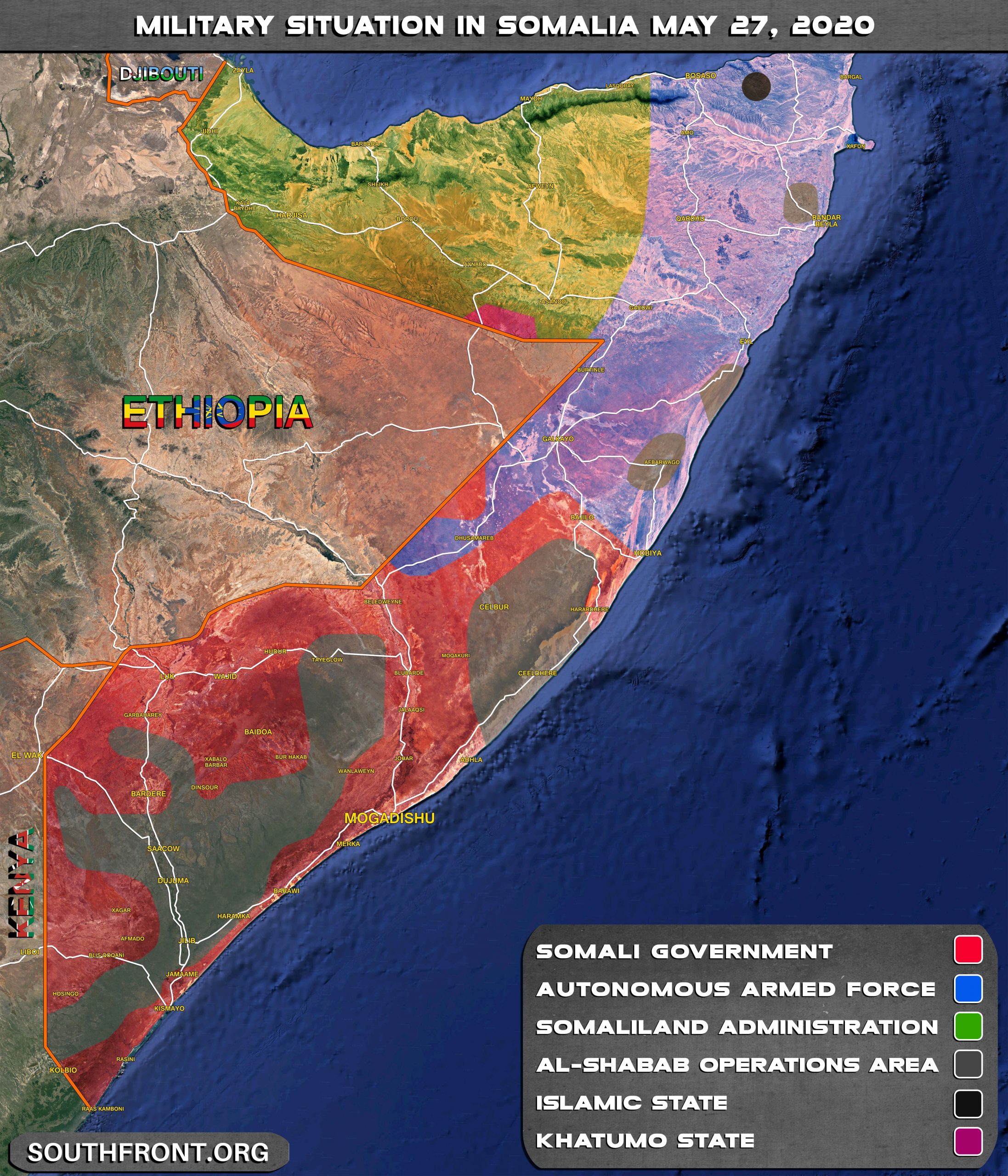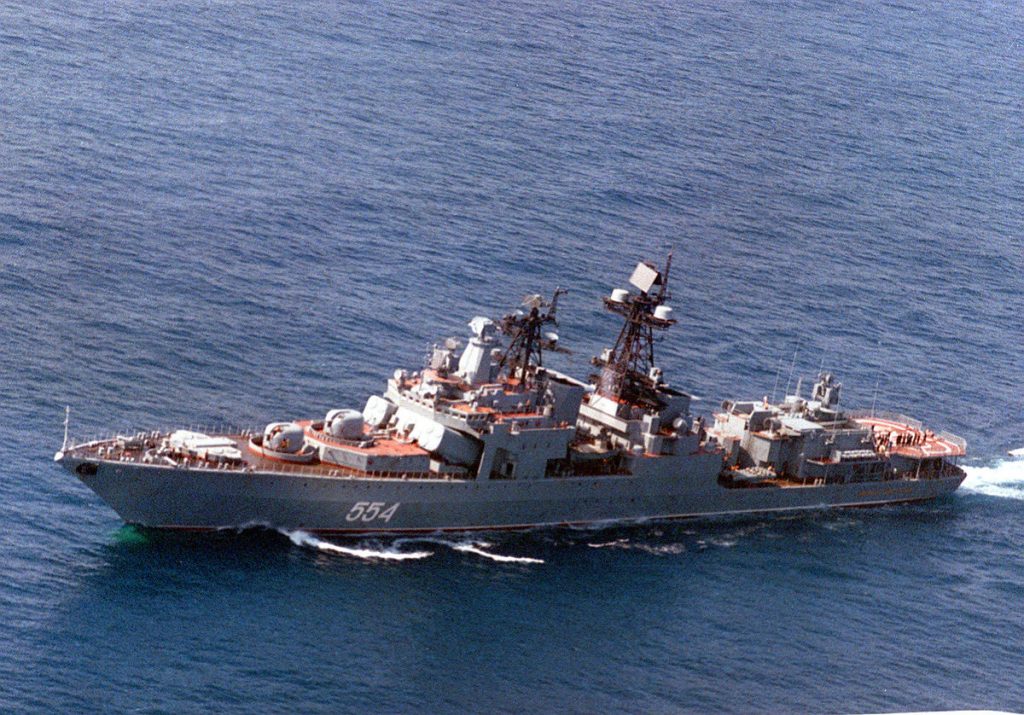DEAR FRIENDS. IF YOU LIKE THIS TYPE OF ANALYTICAL CONTENT, SUPPORT OUR WORK:
PayPal: southfront@internet.ru
Donation alerts: https://donationalerts.com/r/southfront
Gumroad: https://gumroad.com/southfront
Or via: http://southfront.org/donate/ or via: https://www.patreon.com/southfront,
BTC: 3Gbs4rjcVUtQd8p3CiFUCxPLZwRqurezRZ,
BCH ABC: qpf2cphc5dkuclkqur7lhj2yuqq9pk3hmukle77vhq,
ETH: 0x9f4cda013e354b8fc285bf4b9a60460cee7f7ea9

A Russian Navy assault team from the Russian Federation ship Severromorsk land by helicopter on the deck of the Italian Ship San Marco, the NATO flag ship to Operation Ocean Shield, during a NATO-Russia counter piracy exercise in the Gulf of Aden. The Russian team are using the NATO ship to practice their boarding procedures to free hostages during a simulated piracy exercise with NATO.
Piracy is a form of organized international crime, which includes the following:
- Any unlawful act of violence, detention or any robbery committed for personal purposes by the crew or passengers of any private property ship and directed on the high seas against another ship or persons and property located on her board;
- Any unlawful act of violence, detention or any robbery against any ship, persons or property in the area outside jurisdiction of any state;
- Any act of voluntary participation in the use of any ship, committed with knowledge of the circumstances by virtue of which the ship is a pirate ship;
- Any act that constitutes incitement or knowingly contributes to the carrying out of the above actions.
There are several reasons for the prevalence of piracy in the Horn of Africa:
1. The lack of a single government and executive authorities.
Since 1991, Somalia has virtually ceased to exist as a centralized state, having broken up into zones of influence of local authorities, and the centralized economy and financial system have not been functioning since then.
2. The difficult economic situation of the region’s population.
The unstable political situation in the country led to the decline of the entire social and economic infrastructure. The dominance of poachers and the dumping of toxic waste in the waters of Somalia by foreign ships significantly limited the ability of locals to earn a living by fishing. This forced many to turn to piracy.
3. The location of the Somali coast near one of the busiest trade routes in the world, connecting Asia with Europe through the Suez Canal.
Given the intensive trade contacts of Asian and European countries, a large flow of ships with valuable cargo represents a mass of objects for potential capture.
Piracy in this area of the world has been rapidly developing since 2004.
In 2008 alone, Somali pirates hijacked 42 merchant ships. For example, in November, they captured the huge 330-meter-long Saudi oil tanker Sirius Star. The tanker was transporting $110 million worth of crude oil to the United States.
4. Inadequate efforts by coastal governments to combat piracy.
5. The interest of various external forces, including insurance and private military companies.
The Russian involvement in anti-piracy actions is based on the following legal basis:
- Geneva Convention on the High Seas of 1958. Article 14 of the 1958 Convention states: “All states are fully obligated to contribute to the elimination of piracy on the high seas and elsewhere outside the jurisdiction of any state.”
- United Nations Convention on the Law of the Sea (UNCLOS) of 1982. In the 1982 Convention, this provision is enshrined in article 100, all states cooperate in the suppression of piracy on the high seas or in any other place outside the jurisdiction of a state as much as possible.
- Convention for the Suppression of Unlawful Acts against the Safety of Maritime Navigation of 1988. This convention is a multilateral treaty by which states agree to prohibit and punish behavior that may pose a threat to the safety of maritime navigation.
- Military Doctrine of the Russian Federation. In accordance with Art. 31 of the Military Doctrine of the Russian Federation, the formation of the Armed Forces can be quickly used outside of Russia in the fight against piracy, ensuring the safety of navigation.
- Other, less significant, but still enforced international agreements to prevent piracy. Russia carries out various activities to fight piracy. Russia is interested in protecting both its own and the international maritime shipping from piracy.
Forces of the Russian Navy escort ships, conduct aerial reconnaissance to discover pirate activity, search and detain suspicious ships and persons suspected of piracy, destroy pirate boats, and also establish cooperation with the naval forces of other states that fight piracy.
Since 2008, warships of the Russian Navy (Admiral Vinogradov, Admiral Tributs, Pyotr Velikiy, Marshal Shaposhnikov, Neustrashimy, and others) have sailed towards the coast of Somalia on anti-piracy operations.
Since 2008, the Russian Navy has carried out 32 trips to the Gulf of Aden and other pirate-hazardous areas. 152 groups of ships (caravans) and 727 ships have been escorted (56 of them are ships flying the Russian flag). Russian forces have prevented 10 seizure attempts and detained 7 craft and 80 pirates. The liberation of the Moscow University tanker on May 6th, 2010 off the coast of Somalia was among the most successful operations.
Thanks to joint international efforts, the situation with pirate attacks in the area off the coast of Somalia and in the Gulf of Aden was taken under control.
In 2017-2018 Severomorsk, a large anti-submarine ship of the Russian Northern Fleet, carried out the tasks of protecting maritime navigation from pirate attacks in the Gulf of Aden.
“In order to ensure a naval presence in the far ocean zone, the North Fleet improved its combat training and professional skills, carried out a military diplomatic mission, carried out anti-piracy tasks and ensured the safety of civil shipping.”
In 2019, the Yaroslav Mudry frigate, from the Baltic Fleet, escorted a caravan of civilian ships in the Gulf of Aden, together with the Yelnya tanker and the Viktor Konetskiy sea tug.
In 2020, the Baltic Fleet group, which returned to Baltiysk on May 5th, 2020, will be replaced by the Admiral Grigorovich frigate of the Black Sea Fleet. On May 20th, the ship, together with the rescue tugboat Professor Nicholas Muru, sailed through the Suez Canal towards the Indian Ocean.
Russia, also, cooperates with other states in fighting piracy in the Horn of Africa.
For this period, the region has combined international naval forces from 33 countries. They provide security in international waters with an area of about 3.2 million square miles.
The Russian Navy joined the international efforts to combat piracy off the coast of Somalia in 2008. Since then, a significant number of Russian and foreign ships have been escorted through this most dangerous area. Many pirate attacks have been repelled.
In particular, in 2009, Russian forces took part in the Ocean Shield, an international anti-piracy operation.
Periodically, Russia, together with other countries, takes part in naval exercises. In December 2019, joint exercises of the naval forces of Russia, China and Iran took place.
Maneuvers are being worked out to allow for measures to combat terrorism and maritime piracy, as well as to ensure security in a key area for world trade.
Growing Threat
Despite ongoing international efforts, the significant presence of warships of various countries in the sea area off the coast of Somalia, and some successes in the fight against piracy in recent years, the threat of attacks on ships in the Horn of Africa will likely increase in 2020 and 2021.
The main reasons for that are:
- An unstable political situation, both within the region and on the global arena. Another factor is the growing confrontation of the United States with Iran and China.
- A significant deterioration in the socio-economic situation in the region.
- Limitations of the coronavirus pandemic. The infection spreads among navies, security services. Specialized PMCs also work more carefully.
- The reduction of the volume and profitability of world trade, and as a result, the likely cost savings.
- The global economic downturn in general.
Today the world is better prepared to fight pirates than in the 2000s. There are anti-piracy missions. Many ships are equipped with strongholds and a wide experience has been gained in clashes with pirates. There are corresponding security structures. However, the abovementioned challenges and threats do not allow optimism towards the solution of the problem of piracy in the waters of Somalia and the adjacent sea area. Shipowners, fleet operators and sailors should to prepare for the increasing threat of attacks on ships in these waters.
MORE ON THE TOPIC:







Complete bs. Hypocrisy, self-goodness and greasy sweet lies are driving down the page.
Piracy is free men taking what rightfully belongs to the African Horn and their societies from Western desk killers and Russian liberal crybabies. Period.